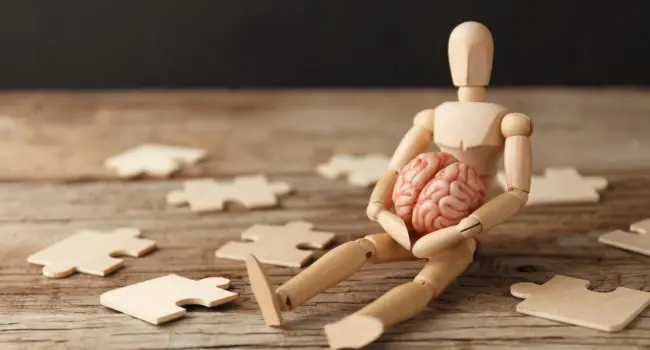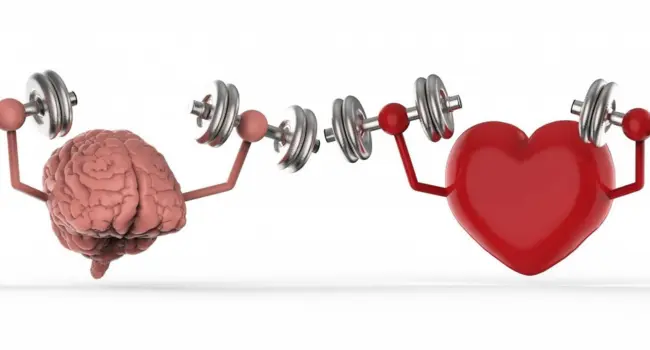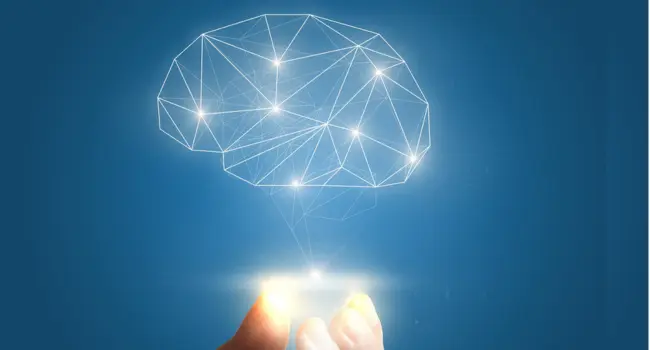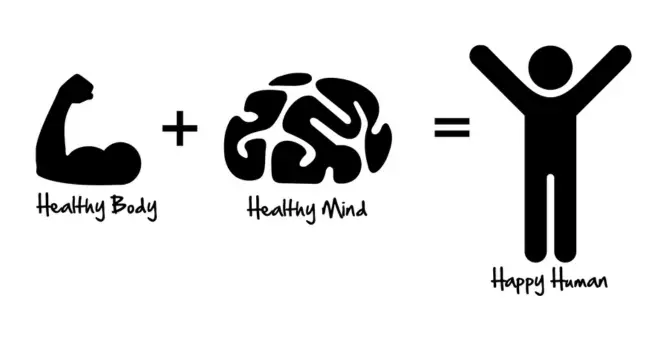The mind-body link describes how your ideas and feelings impact your body. It also means that your body can influence your thinking. When you’re pleased or relaxed, your body feels better. When the body is fit, your mind thinks more clearly. This emphasizes the value of both mental and physical health. When the brain and body work shared, you feel strong and relaxed. You’re also better able to tolerate stress. Understanding the mind-body link allows you to better care for yourself. It keeps you healthy every day. Knowing this is critical for a happy and healthy existence. Take proper care of your physical and mental wellness.
How the Mind and Body Work Together
Your brain and body are continually communicating. They’re like best friends. When you’re happy, your body feels terrific. You may smile or have greater energy. When you’re unhappy or worried, your body may feel exhausted or unwell. This demonstrates the link between your body’s psychological and physiological functions. Your ideas can influence how your body feels. This is known as “connecting mind and body. It means that your emotions can influence your health. When your mind is at ease, your body will follow suit Understanding this allows you to care for both. Always work to maintain your mind and body healthy and powerful together.
What is the Mind-Body Connection?

The “mind-body connection” refers to how your thoughts, emotions, and body interact. When you are unhappy or fearful, your body may feel it. When you are scared, you may get stomach aches. This is because your body and mind interact with one another. Understanding body responses allows you to understand why this happens. If you are satisfied, your body will feel better. When your body is ill, your mind may become sad. Understanding body responses helps you understand why this occurs. If you’re pleased, your body will feel better. When your body is ill, your mind may feel unhappy. They have an effect on one another. Learning about this will help you stay healthy. It demonstrates the deep link between the way we think and the way we feel within our bodies.
Why the Mind-Body Connection Matters
The mind and body function together. When they are in harmony, we feel better. The benefits of the mind-body link include improved health and emotional well-being.
A Simple Example of the Mind-Body Connection
Imagine you have the opportunity to speak in the center of your class. You might feel your heart racing. Your hands may become sweaty. Your stomach may feel funny. These are signals from your body. These happen when you are nervous. This demonstrates how your thoughts affect how your body feels. These signals are known as emotional triggers. Emotional triggers are feelings that make your body react. They help you grasp what’s going on within. When you see them, you can learn to remain calm. Knowing about your feelings allows you to feel more in control. It also enables you to care for both your mind and body.
How the Mind-Body Connection Affects Stress
When you’re stressed, your brain signals your body to produce a hormone called cortisol. This is a component of the flight or fight reaction. It permits you to remain safe while in peril. Your heart beats faster. Your body prepares to act. However, if you are constantly stressed, your cortisol levels will remain high. This is not healthy for your health. It may cause headaches. You may have difficulty sleeping. You might also become sick more frequently. Your body requires rest to maintain its strength. Stress can make it difficult to stay healthy. Taking deep breaths or speaking with someone can help. Keeping your mind and body relaxed is critical.
A Quick Look at the History of the Mind-Body Connection

People once believed that the mind and body were separate. Over time, they learned that these factors are strongly related. This concept influenced holistic health, which takes into account the entire individual.
Ancient Views on the Mind-Body Connection
Long ago, people believed that the mind and body were intertwined. They believed that both needed attention to keep healthy. Yoga and meditation were practiced throughout antiquity. These made them feel calmer and stronger. They also promoted emotional awareness. This suggests they grew to comprehend their emotions. Knowing your emotions might help you stay happy and healthy. Yoga makes the body feel better. Meditation makes the mind feel clearer. People thought both were significant. They saw health as a combination of body and mind. This thought improved their lives Many individuals still observe these historical traditions nowadays. They remind us to care for our bodies and minds together.
How Western Medicine Saw the Mind and Body
Historically, Western medicine saw the mind and body as distinct things. Doctors mostly looked at physical issues. They didn’t put much emphasis on feelings or thoughts. Mental strain was often overlooked. This means they failed to recognize the negative effects of stress on the body. But things have changed. Many doctors understand that the mind and body work together. Sadness and concern can have a harmful impact on one’s health. Psychological stress can result in actual pain or illness. Today, doctors strive to care for both the mind and the body. This helps people heal and stay healthy. It demonstrates the importance of treating the full person, rather than just the body.
How the Mind-Body Connection Affects Your Daily Life

Your emotional and physical health are intricately linked. Daily pressures, such as school or chores, can affect both. Understanding this relationship allows you to feel better and maintain your health every day.
How Mental Health Affects Your Body
Your mental mood may alter how your body feels. If you’re depressed or worried, your body may feel fatigued or sore. This occurs due to brain chemicals known as neurotransmitters. Serotonin and dopamine are two key neurotransmitters. They help you keep your mood under control. They also help your body function properly. If these substances are not in balance, you may feel ill or weak. Dopamine makes you feel happy and energized. Serotonin helps you relax and sleep well. When you feel nervous or sad, these substances may not function properly. That can also make your body feel awful. So, keeping your mind healthy contributes to the overall health and strength of your body.
How Your Physical Health Affects Your Mind
Your physical health can influence how you feel. When you care for your body, your brain functions better. Exercise might make you feel happier and stronger. It can also promote mental clarity. This means you’ll be able to think and concentrate more clearly. Eating healthy meals is also crucial. Your brain need nutritious meals to function properly. Vitamins and nutrients found in fruits and vegetables help keep your mind sharp. When your body feels well, your mood improves. You could feel less weary or melancholy. Staying active and eating healthily benefits both your body and mind. Taking care of your health improves your mood throughout the day.
How Stress Impacts the Mind-Body Connection
When you’re stressed, your body releases adrenaline. This helps your body prepare to face issues. These neural system responses temporarily increase your heart rate and muscle strength. However, long-term stress might lead to issues. Your body’s bodily reactions may remain active for too long. This can lead to elevated blood pressure and intestinal difficulties. It is vital to develop stress management skills. It helps to keep your nervous system calm and your body healthy. Managing stress improves your entire well-being and keeping your mind and body operating together.
Signs That Your Mind-Body Connection is Off Balance
If you are constantly exhausted, it could be from mental exhaustion. When your mind is fatigued, it is difficult to focus and think clearly. You can also struggle with emotional regulation. This suggests you struggle to regulate your emotions. When your mind and body do not operate well together, you may become more prone to illness. These indications indicate that your mind-body relationship is out of harmony. It is crucial to pay attention to these indications. This can help you take efforts to improve your health and well-being.
Benefits of a Strong Mind-Body Connection

A strong mind and body connection makes you feel healthier and happier. Understanding the benefits of the mind-body link can help you enhance your mood and maintain your body functioning properly on a daily basis.
Better Focus and Mood
Improving your mind-body connection might aid with concentration. When you practice meditation or exercise, your brain performs better. These activities help improve mood, making you feel more at ease and happy. When your mind and body function together effectively, it is easier to pay attention and complete activities. You can feel less anxious and more relaxed. This allows you to appreciate your day more. Maintaining a strong connection between your mind and body is essential. It provides support for both your thoughts and emotions. Every day, simple habits like meditation or walking might help you focus and feel better.
More Energy and Less Stress
When your mind and body operate well together, you have greater energy throughout the day. This link allows you to alleviate stress in a healthy manner. When you are less stressed, it is easier to remain calm and joyful. A healthy mind-body link also increases resilience to stress. This implies you can deal with challenges more effectively and recover sooner. You will not be overwhelmed by daily obstacles. Feeling powerful and healthy requires maintaining harmony between your mind and body. Simple activities like deep breathing or light exercise might help you manage stress and maintain energy throughout the day.
Improved Sleep and Digestion
A strong mind-body connection can improve sleep and leave you feeling more rested. When you sleep well, your body and mind function better. This relationship promotes good digestion. It can help to relieve stress-related gastrointestinal troubles. When you are less worried, your stomach feels better, and food digests more easily. Good sleep and digestion are essential for feeling strong and healthy during the day. Keeping your mind and body in harmony benefits both. Simple behaviors such as resting before bedtime and consuming nutritious foods can enhance sleep quality and digestion. This makes your entire body feel happier and more prepared for each new day.
Stronger Immune System
Managing stress improves immunological function. When your immune system is healthy, it can fight off infections more effectively. Maintaining a happy outlook benefits your overall health. It helps regulate blood pressure, which is beneficial to your heart. When your blood pressure is controlled, your body functions well throughout the day. Reducing stress and maintaining happiness benefit your entire body. A strong mind-body connection keeps you healthy and full of energy. Simple practices such as relaxing, eating healthily, and remaining calm can improve immune function and regulate blood pressure. Taking care of your mind and body allows you to feel better and stay healthy for a long time.
Simple Ways to Strengthen the Mind-Body Connection

Learning how to improve the mind-body connection is simple. Deep breathing and exercise are two mind-body practices that can help the body and mind function together more effectively every day.
1.Mindfulness
Mindfulness entails focusing on what is happening right now. It helps you relax and understand your thoughts. When you practice mindfulness, you begin to notice how your body feels. This is known as the mind-body link. It can improve your mood and make you more relaxed. Mindfulness for beginners is simple to practice. You can begin with simple steps such as breathing gently and sitting quietly. Many useful tools and instructions are created specifically for novices. They teach you how to practice each day. Anyone may develop mindfulness, including children. Start small and practice frequently. With practice, mindfulness becomes easier and more beneficial. It’s an excellent approach to care for your mind and body.
2. Breathwork
Deep breathing techniques, such as diaphragm breathing or alternative nostril breathing, help relax your mind and body.
Deep breathing exercises will help you feel peaceful and relaxed. They are simple to execute and effective when you are stressed. One method is diaphragmatic breathing. You take deliberate breaths in, allowing your tummy to rise. Then exhale gently. This makes your body feel calmer. Another option is to breathe through each nostril alternately. You breathe across one side of your nose before switching. This can make your thoughts feel more clear and concentrated. Both breathing strategies are simple and safe. You can do them anytime. Deep breaths are beneficial for everyone, including children. Try these every day to improve your mood and focus.
3. Meditation
Meditation promotes inner peace and happiness. It allows you to connect to your inner self. Guided meditation is an easy way to get started. In this case, someone assists you by guiding you step by step. It is ideal for beginners. Another option is loving-kindness meditation. This allows you to send positive ideas to yourself and others. It makes your emotions feel warm and filled with love. Both forms of meditation are simple to try. You can sit quietly as you go along. Daily meditation can help you feel better within. It can also help you remain calm. Meditation is a simple technique to care for your emotions and mind.
4. Visualization
Visualization can help your mind and body feel calm. It use mental imagery to depict serene settings such as a beach or a quiet forest. You can also use guided imagery. In this case, someone walks you through the situation to assist you relax. Both methods are simple to follow. They help to relieve stress and concern. When you utilize mental images, your brain feels as if it is in that serene environment. This can make you feel happier and safer. Visualization is an excellent method for calming down. You can do it whenever you’re nervous. Try it frequently to feel better. It’s a simple yet effective method of mental relaxation.
5. Progressive Muscle Relaxation (PMR)
Progressive muscular relaxation is an easy approach to make your body feel calmer. It operates by contracting and then relaxing various muscles. This helps to relieve stress and muscle tightness. You can begin with your feet and progress up to your head. Tense a muscle for a few seconds, then relax. This technique makes your body feel more relaxed and at ease. Progressive muscular relaxation is ideal before bedtime or after a long day. It is safe and simple for everyone to attempt. It teaches your body how to be relaxed. Practicing this regularly can help you remain calm and focused. It’s excellent for your brain and body.
6. Body Scanning
Body scan meditation is a soothing and simple approach to unwind. You begin by focusing on your toes and gradually progress up to your head. You pay attention to every element of your physique. This makes you feel more relaxed and safe. It can also assist you relieve stress. When doing this, your body will feel lighter and softer. That is known as bodily relaxation. You can do this seated or lying down. It simply takes a few minutes a day. Body scan meditation improves both your physical and mental well-being. It is an effective technique to unwind, concentrate, and feel tranquil.
7. Intentional Physical Movement
Intentional motion refers to moving the body with purpose and paying close attention to each activity. It is an intelligent technique to make your body and mind feel better. When engaging in physical activities such as walking, stretching, or dancing, try to concentrate on how you move. Maintain good posture and control your breathing. Stand tall and breathe slowly. This helps you remain powerful and relaxed. This type of movement fosters physical health and mental peace. You don’t need to move quickly. Simply move with care and focus. Doing this every day can make you feel more energized. Intentional physical activity is a fun and straightforward approach to stay healthy both inside and out.
8. Somatic Therapy
Somatic therapy is a unique approach to improving your well-being that involves using your body. It helps you become more aware of how your body feels. This can also help you comprehend your own sentiments. Sometimes our bodies store stress or sadness. Somatic therapy teaches you how to let it go. It can promote emotional recovery by making you feel comfortable and tranquil. You may sit, move, or breathe slowly throughout the session. This helps your body relax. Over time, you may feel lighter and happier. Somatic therapy is a gentle and secure approach to feel better. It makes your body and heart feel powerful and peaceful.
9. Yoga and Stretching
Yoga and stretching are excellent techniques to make your body and mind feel better. When you do yoga positions, you move your body slowly and gently. This helps you gain flexibility and balance. It also makes your mind feel calmer. Movement-based meditation entails concentrating on your breathing and body while moving. It makes you feel calm and strong. You do not need to be perfect. Simply do your best and move carefully. Doing this every day can make you feel happier and more calm. Yoga and stretching are safe and uncomplicated for everyone. They are good for your body, mind, and heart.
10. Healthy Eating for Brain and Body
Healthy eating is selecting foods that support the proper functioning of your body and mind. Eating fruits, vegetables, entire grains, and proteins provides energy. It makes you feel stronger and happier. A well-balanced diet also improves your cognitive functions. That is, it improves your ability to think clearly, remember information, and learn effectively. When you eat healthily, your brain and body remain healthy. Drink plenty of water and limit your intake of sweets and junk food. Healthy eating fosters growth in physique and activity. They also enable you to be calm and focused. Healthy food for the brain and body is a simple method to care for yourself every day. It helps you stay smart, strong, and full of energy.
Therapy and Techniques That Focus on the Mind-Body Connection

These techniques facilitate the coordination of the mind and body. They employ specialized approaches and practices to promote well-being. This allows people to feel better and stay healthy.
Psychoneuroimmunology
This field is an inquiry of how the mind influences the immune system. It examines how nervous system processes affect our health. When we are joyful or worried, our nervous system transmits signals to the body. These messages can either protect us or make us sick. Scientists in this subject investigate how our thoughts and emotions interact with our bodies’ defensive mechanism. Understanding this allows doctors to identify more effective strategies to keep patients healthy. It demonstrates the importance of caring for both the mind and body in order to achieve complete well-being.
Polyvagal Theory
Polyvagal Theory describes the neurological system’s response to stress. It helps us comprehend why we’re terrified, relaxed, or thrilled. The theory demonstrates several ways in which the body responds to danger or safety. Using this understanding, we can acquire stress-management practices. These approaches assist us remain calm and comfortable throughout difficult moments. They educate us how to regulate our breath and heart rate. When we use these techniques, our bodies feel safer and less stressed. This notion is significant because it helps people maintain their mental and physical health by naturally soothing the nervous system.
Embodied Cognition
Embodied cognition is the idea that our bodily experiences shape how we think and see the world. It demonstrates how what we feel in our bodies can influence our thoughts. This teaches us more about ourselves. Paying attention to our bodies helps us become more self-aware. Being aware of how we move and feel helps us better understand our emotions. This concept demonstrates the close relationship between the mind and the body. Observing our body’s signals allows us to think more clearly and make better decisions. Embodied Cognition enables people to connect their sensations and thoughts, resulting in a better and more balanced life.
Biopsychosocial Model
The Biopsychosocial Model examines three major aspects of health: the body, the mind, and the environment around us. It helps us comprehend how these components work together to keep us healthy. When we feel sick or stressed, it could be due of our bodies, our thoughts, or events involving family or friends. This paradigm helps doctors and caregivers see the big picture. It also teaches us about mental resilience, which is remaining strong inside even when situations are difficult. People benefit from greater care for all of these parts. This ensures that everyone receives comprehensive and conscientious health care.
Yoga Therapy
Yoga Therapy is a method of improving people’s well-being that combines yoga with other healing techniques. It contains light workouts such as tai chi and qigong. These activities allow the body to move gently and softly. They also help the mind rest and feel calm. Tai chi and qigong are excellent for increasing balance and vitality. Yoga Therapy promotes recovery by targeting both the body and the mind. It’s utilized to relieve tension and pain. This method helps people keep healthy in a natural and friendly manner. It is a compassionate and caring approach to improving everyone’s entire well-being.
Acupuncture
Acupuncture is an ancient healing procedure that employs extremely fine needles. These needles are gently put on the body to assist relieve stress. When muscles are tight or sore, needles helps by improving energy flow within the body. This energy flow is critical for overall wellness. Acupuncture can relieve pain and promote sleep. It is commonly used to treat headaches, stress, and muscle difficulties. This strategy encourages the body to mend itself organically. Acupuncture is a safe and gentle way for fostering wellness. Many people utilize it on a daily basis to improve their balance and overall health.
Integrative Nutrition
Integrative Nutrition promotes holistic health, which entails caring for the all person—body and mind. It combines nutritious meals with changes in lifestyle such as exercise and proper sleep. This strategy improves people’s inner and outside well-being. By eating the correct food, the body gets the energy it needs to keep going. In along with diet, good behaviors like stress reduction and physical activity promote mind-body wellness. Integrative Nutrition argues that health is about balance, not a single factor. It helps people live happier, healthier lives by taking into account all aspects of their well-being. This ensures that everyone receives thorough and careful medical care.
Holistic Occupational Therapy
Holistic therapists helps patients with both their mental and physical health. It looks at the entire individual to ensure that all requirements are met. This therapy employs regular activities to help patients recover and develop skills. Cooking and painting are simple tasks that can improve emotional well-being. These tasks make people feel more confident and peaceful. It also makes individuals feel more in command of their lives. Holistic physical treatment involves more than just issue solutions. It is about making people’s lives better on a daily basis. This therapy makes life happier and more healthy in a natural and compassionate way by caring for the body as well as the emotions.
Micro Current Neurofeedback
Micro Current Neurofeedback is a mild, safe therapy for improving brain function. It employs tiny electrical signals that you cannot feel. These signals allow the brain and body to communicate more efficiently. This is known as brain-body communication. When this works properly, people can think more clearly and feel less stressed. It is beneficial for conditions such as stress, anxiety, and difficulty concentrating. The procedure is quick and simple. You simply sit and relax while the signals do the work. Many people report feeling better after only a few sessions. It helps the brain recover itself. Micro Current Neurofeedback is an effective technique to naturally improve brain health.
How to Know If You Need Help with Your Mind-Body Connection

Sometimes your mind and body do not operate well together. This can make you feel tired, sad, or stressed. Getting help is a good step toward building a stronger mind-body relationship.
Physical Warning Signs
When your mind-body connection is interrupted, you may experience symptoms. A rapid heart rate is one symptom. Even after sleeping, you may still feel fatigued. You might also become sick more frequently. These indicators indicate that your body and mind are not working effectively together. It’s as if they’re not conversing properly. When your heart rate changes dramatically, it can be a sign. Fatigue and recurrent illness are also warning flags. These signs should not be ignored. They may indicate that your body is stressed. Seeking assistance as soon as possible is critical. It can make your body feel better. Taking care of your mind and body helps you stay healthy and strong.
Emotional and Mental Warning Signs
Your feelings can sometimes alert you to a problem. If you become extremely disturbed following minor emotional occurrences, this could be a clue. You may feel sad one moment and angry the next. These are termed mood swings. Feeling really worried or afraid may indicate that you require assistance. These indicators indicate that your mind and body are not operating effectively together. It’s as if your brain is working too hard to regulate emotions. This can cause you to feel weary or anxious. It is critical to be aware of these warning indicators. Getting assistance can make you feel better. It helps your mind to stay calm and strong. Emotional health is equally important as physical health.
Who to Talk to for Help
If you are constantly sad, weary, or stressed, it is acceptable to seek assistance. Talking with someone can make a significant difference. You can talk to a doctor, a counselor, or a therapist. These individuals are trained to make you feel better. They can teach you wellness strategies that allow your mind and body to operate together. Breathing techniques, discussing your feelings, and learning to relax are all possible options. Wellness strategies might help you feel calmer and stronger again. You don’t have to go through difficult times lonely. Getting treatment is a prudent and courageous decision. It shows you care about your health. Remember that aid is accessible whenever you need it.
Final Thoughts: Calm Your Mind, Change Your Life
Learning how to relax your thoughts will help you feel better every day. As you practice mindful awareness, you’ll notice how your mind and body connect. This helps you to take better care of yourself by basic daily behaviors such as deep breathing, gentle movement, or practicing gratitude. These are simple yet powerful tools. They help you feel less stressed and more balanced. Listening to your body is essential. It alerts you when anything is wrong or when you should relax. When your mind is relaxed, your entire life can feel better. Remember that a peaceful mind leads to a healthier and happier existence.
Mind-Body Connection Frequently Asked Questions (FAQs)

What is a real-life example of the mind-body connection?
A real-life example of mind-body awareness is being nervous before a performance. Your hands may become sweaty, and your stomach may discomfort. This demonstrates how your mind and body operate together.
What are three fun activities that use the mind-body connection?
Here are three enjoyable mind-body practices. Yoga allows you to stretch and breathe. Dancing causes your body to move in time with the music. Tai Chi uses calm, gentle movements to help you relax.
How can kids and adults both improve it?
Kids and adults can try connecting mind and body by breathing slowly, stretching each day, or making art. These fun activities help you feel calm, happy, and focused.
Can the mind-body connection help with anxiety or depression?
Yes, the mind-body link can help relieve anxiety. Meditation, deep breathing, and physical activity can all help you feel more relaxed and cheerful. They build your mental and physical strength.




